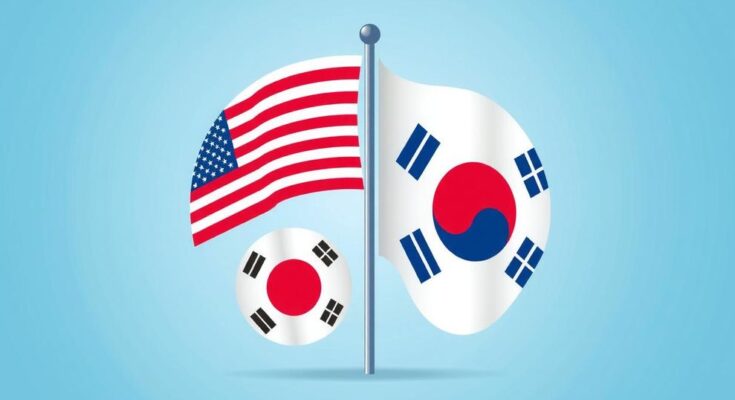The United States, Japan, and South Korea reaffirm their commitment to North Korea’s complete denuclearization in a joint statement, highlighting their concerns about North Korea’s nuclear capabilities and cyber threats, while pledging to maintain international sanctions.
On Saturday, the United States, Japan, and South Korea issued a joint statement reaffirming their strong commitment to achieving the complete denuclearization of North Korea. This announcement followed a meeting between US Secretary of State Marco Rubio, South Korean Foreign Minister Choe Tae-yul, and Japanese Foreign Minister Takeshi Iwaya during the Munich Security Conference.
The statement emphasized their dedication to denuclearization in line with United Nations Security Council Resolutions (UNSCRs). The countries expressed grave concerns regarding North Korea’s ongoing nuclear and missile programs, its malicious cyber activities including cryptocurrency theft, and its burgeoning military cooperation with Russia.
Additionally, the trio issued a stern warning against any provocations or threats aimed at their nations. They pledged to sustain and enhance international sanctions on North Korea while also advocating for the swift resolution of issues relating to abductees, detainees, unrepatriated prisoners of war, and separated families.
North Korea remains largely isolated from global diplomacy and trade, rendering its persistent nuclear program a significant concern for the United States. Former President Donald Trump had engaged in historic meetings with North Korean leader Kim Jong Un, expressing intentions to reestablish contact, describing Kim as a “smart guy.”
Despite these overtures, North Korea announced in January its intention to continue its nuclear program indefinitely. Furthermore, it reacted strongly to Rubio’s characterization of it as a “rogue state” and condemned the deployment of a US nuclear submarine to South Korea as a hostile military act. A previous summit between Trump and Kim in Hanoi collapsed in 2019 due to disagreements over sanctions and reciprocal concessions.
In conclusion, the joint commitment from the United States, Japan, and South Korea to a nuclear-free North Korea reflects ongoing geopolitical tensions. Their unified stance against North Korea’s nuclear ambitions and malicious activities underscores their resolve to maintain international sanctions. As diplomatic relations continue to stall, the situation remains precarious, highlighting the complexities involved in achieving lasting peace and stability in the region.
Original Source: www.firstpost.com




